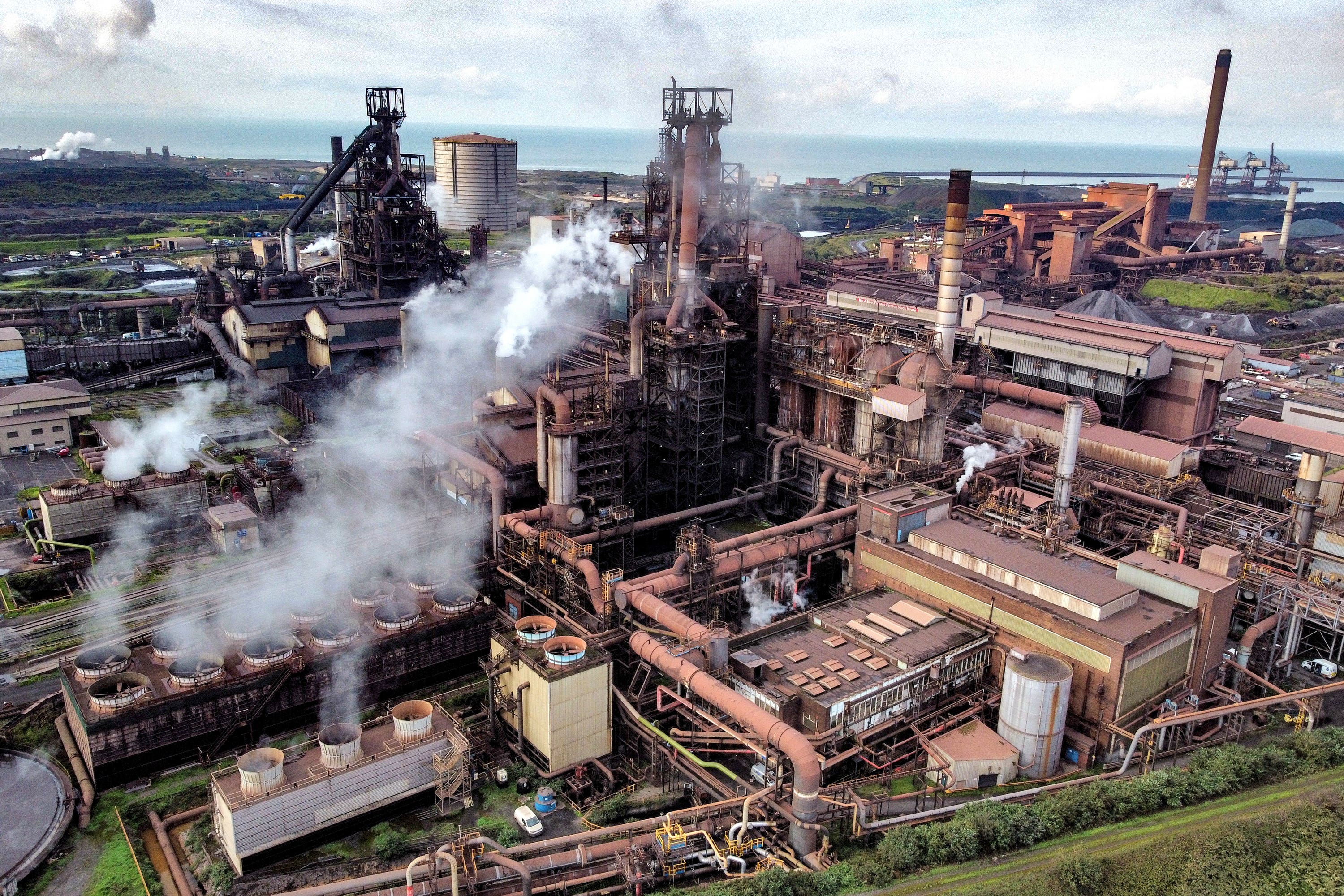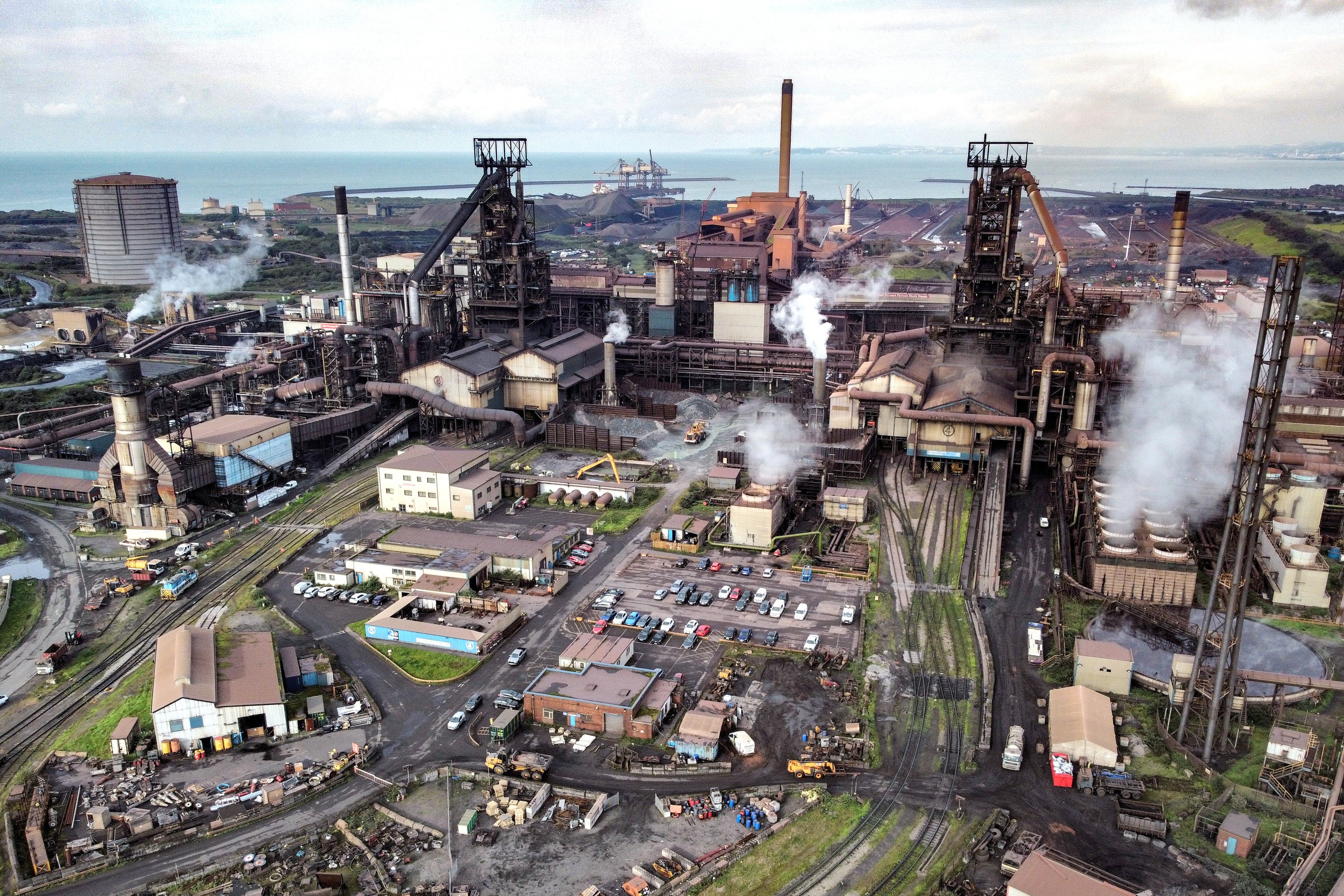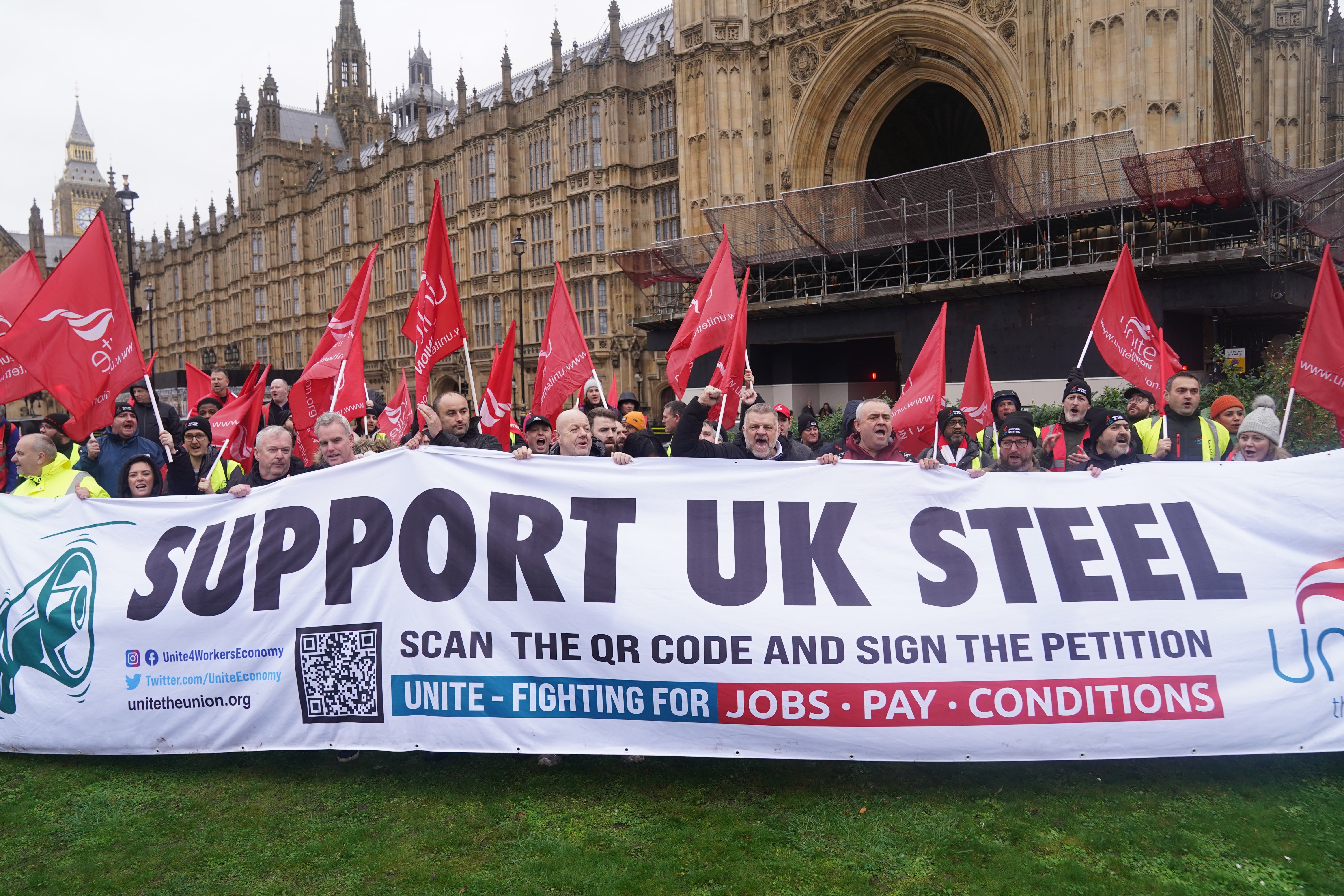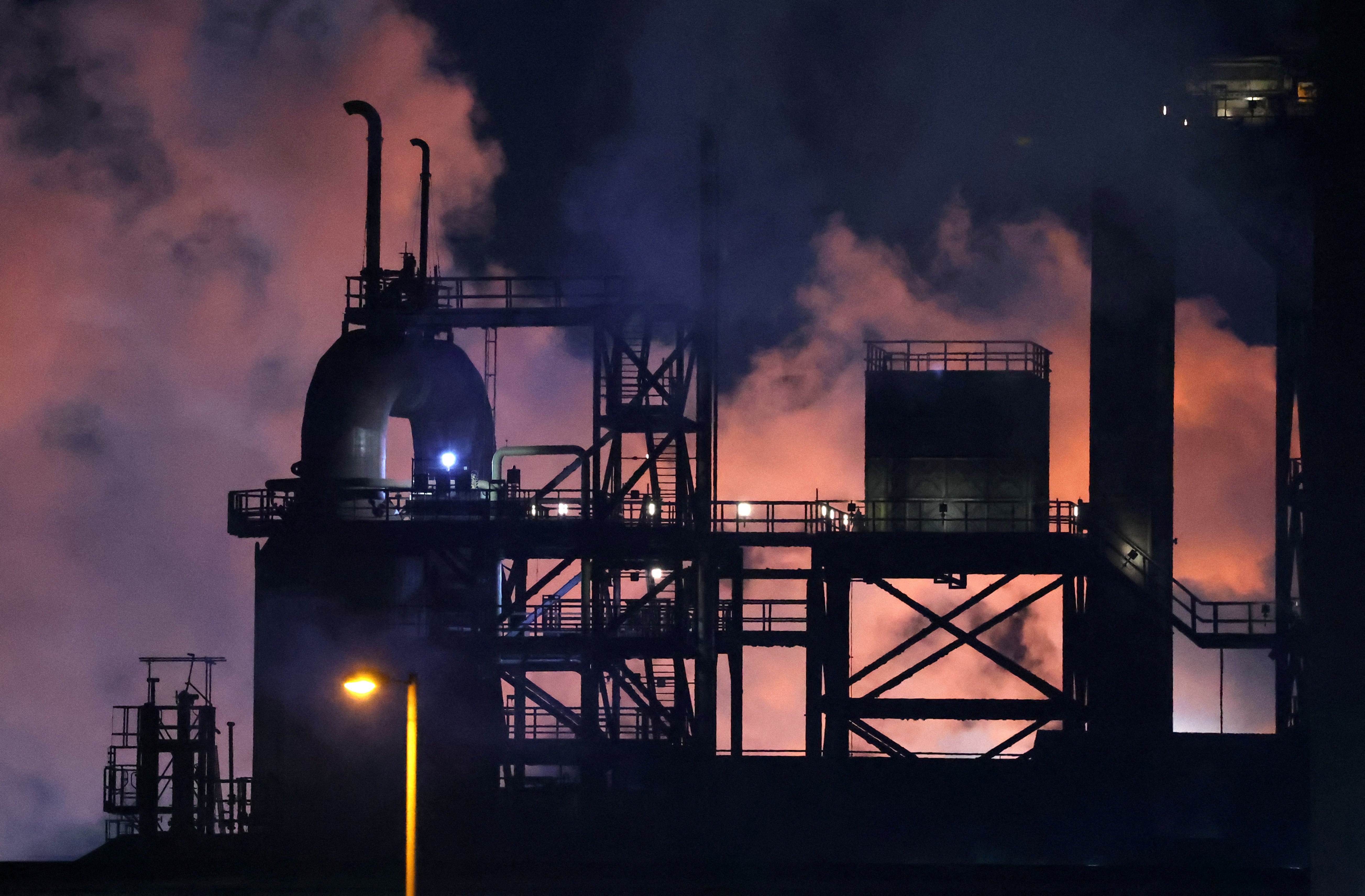Port Talbot: Labour’s deal for steel workers explained as 2,500 job losses announced
Labour has revised a deal drawn up by Conservative government but failed to prevent the thousands of job losses

Your support helps us to tell the story
From reproductive rights to climate change to Big Tech, The Independent is on the ground when the story is developing. Whether it's investigating the financials of Elon Musk's pro-Trump PAC or producing our latest documentary, 'The A Word', which shines a light on the American women fighting for reproductive rights, we know how important it is to parse out the facts from the messaging.
At such a critical moment in US history, we need reporters on the ground. Your donation allows us to keep sending journalists to speak to both sides of the story.
The Independent is trusted by Americans across the entire political spectrum. And unlike many other quality news outlets, we choose not to lock Americans out of our reporting and analysis with paywalls. We believe quality journalism should be available to everyone, paid for by those who can afford it.
Your support makes all the difference.More than 2,500 workers are set to lose their jobs at the Port Talbot steelworks as part of an updated £500 million deal between Tata Steel and the government.
The business secretary Jonathan Reynolds announced the taxpayer-backed grant towards building an electric furnace at the plant in parliament on Wednesday. Tata Steel, the Indian owner of the site, will put in £750 million.
The job losses represent a blow for Labour after it criticised a deal by the previous government for failing to secure job guarantees.
The government says it has improved on the previous terms by obtaining better redundancy packages and protections for remaining workers.
Mr Reynolds admitted that the deal “falls short of what would be my ideal”. He blamed the failure to better protect workers on a “dereliction of duties” by the Tories in past negotiations.
The Conservatives said Labour had raised “false hopes” of saving jobs when that was impossible.
The Community and GMB trade unions said the deal is “not something to celebrate”, but agreed it is “better than the devastating plan announced by Tata and the Tories back in September 2023”.

Here’s everything you need to know about the situation at Port Talbot:
Why are people losing their jobs?
The worker lay-offs come as Port Talbot loses two of its blast furnaces. The first, known as Blast Furnace 5, closed down in July, and the second will go at the end of September. The new electric furnace will require less human labour, meaning most of the jobs are unlikely to be replaced.
Tata is closing the Port Talbot blast furnaces because it claimed they were financially unsustainable. It previously said that the blast furnace operation was incurring losses of £1 million a day.
Port Talbot workers had planned a strike in July, but called it off when Tata said it would force the steelworks to close earlier than expected.
Steel production in the UK has been declining since its heyday in the late 1960s and early 70s. The industry used to be run by publicly owned British Steel, but was privatised in 1988 and subsequently sold off to foreign companies.
In recent years producers of UK steel have complained of high energy costs which far exceed those paid by international competitors. Steel production is incredibly energy-intensive, so these costs exert financial strain.
It has also been claimed that central government has failed to adequately support the industry over the year. Nigel Driffied, professor of international business at Warwick Business School, said: “If other places are subsidising their steel, you have to do the same or have it in public ownership.
“The point at which we decided not to do that, privatising it and selling it to foreign entities, was the start of where we are today.”
China subsidises its steelmakers and is by far world’s largest producer. Its prolific production has flooded global markets with cheaper steel, making it very difficult for UK producers to compete.

What is in the new deal?
Labour and the Conservatives have been arguing over how new the deal really is, with the Tories claiming that very little has changed.
In exchange for the £500m grant, Tata has improved the redundancy package. Staff will now receive 2.8 weeks of salary for every year of service up to 25 years, with a minimum payout of £15,000. The previous offer was 2.1 weeks of salary for every year.
Redundant employees will also now have the opportunity to sign up to a year-long “comprehensive training programme” provided by Tata. They will receive full pay for the first month, and the equivalent of a £27,000 salary for the remaining 11 months.
The programme would help employees gain qualifications in “sought-after skills” in an effort to help them retrain and find future work. More than 2,000 Port Talbot workers have expressed an interest in voluntary redundancy.
Tata has also committed to evaluating future investment opportunities, understood to potentially include a new plate mill for the construction of wind turbines in south Wales.
While the deal inflicts major job losses, it does secure the long-term future of steel production at the site. The taxpayer money will help Tata to fund a new electric arc furnace, which will run a much greener process.

What is the future for Port Talbot and British steel production?
Construction of the electric arc furnace is set to begin in August 2025 and will take several years to complete. The furnace will melt down scrap steel or iron to produce steel, rather than creating it from scratch as the blast furnaces do. Tata has said it expects at least 500 jobs to be created by the construction of the electric furnace.
Losing the blast furnaces means that the plant will no longer produce new, or ‘virgin’, steel. Plaid Cymru has labelled this an “economic blunder” that will “devastate” local communities.
However, the changes mean that Port Talbot, the biggest single polluter in Wales, will become much greener. The blast furnaces emitted around two tonnes of carbon dioxide for every tonne of steel produced.
There are only two other blast furnaces in the country, both belonging to Chinese-owned British Steel at Scunthorpe, where 2,500 people are employed. The future of these two furnaces is in doubt as it is feared that owner Jingye might close them before the end of the year. Jingye is in talks with the government about keeping the furnaces open, and an announcement is expected in the next few weeks that could include a similar package of state support.

If all the closures go ahead, the long tradition of British primary steel production will come to an end. Britain would be the only major economy in the G20 unable to produce steel from scratch, leaving it reliant on imports to supply sectors including aerospace, rail and automotive.
On Wednesday, Mr Reynolds said: “We know that a cleaner, greener future for UK steelmaking is vital to the industry’s long-term economic stability.
“The road ahead is not without its challenges, but our steel strategy will set forth a positive vision for the future of the industry, backed by our manifesto commitment to £3bn of government investment.”
The government will set out its full steel strategy in the spring of next year.
Join our commenting forum
Join thought-provoking conversations, follow other Independent readers and see their replies
Comments